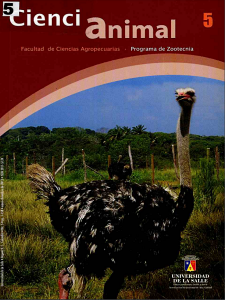Abstract
The present study evaluated weight gaining and the cost-benefit relationship of commercial zebu nursing calf in a double purpose system, with two treatments: a group with food supplement and a group without food supplement. Both groups pastured in Brachiaria decumbens prairies; the group with supplement received a mixture of matarraton (Gliricidia sepium), palm kernel, molasses and mineralized salt, at a ratio of 1.7 kg/animal/day. 16 calf were selected (8 male and 8 female), and randomly assigned to the treatments (4 male and 4 female). The experiment lasted 90 days. The animals with food supplement had a settling period of 10 days and the weight gaining assessment was carried out in three weighing sessions at an interval of 30 days. The cost-benefit relationship was determined through the estimated consumption of food supplement, cost of the supplement and weight gained throughout the period. Statistical differences were found in the daily weight gained and total weight gained between treatments (p < 0.001). Likewise, there were statistical differences between males and females (p< 0.001). The daily weight gain of the group without supplement was of 0.377 kg for females and 0.466 kg for males. For the supplemented group, the gain was 0.480 kg for females and 0.619 for males. The cost-benefit relationship showed a positive outcome for the treatment with food supplement, as it was economically profitable and feasible, with a greater economic profit than the group of animals which only consumed animal feed.Downloads
Download data is not yet available.



